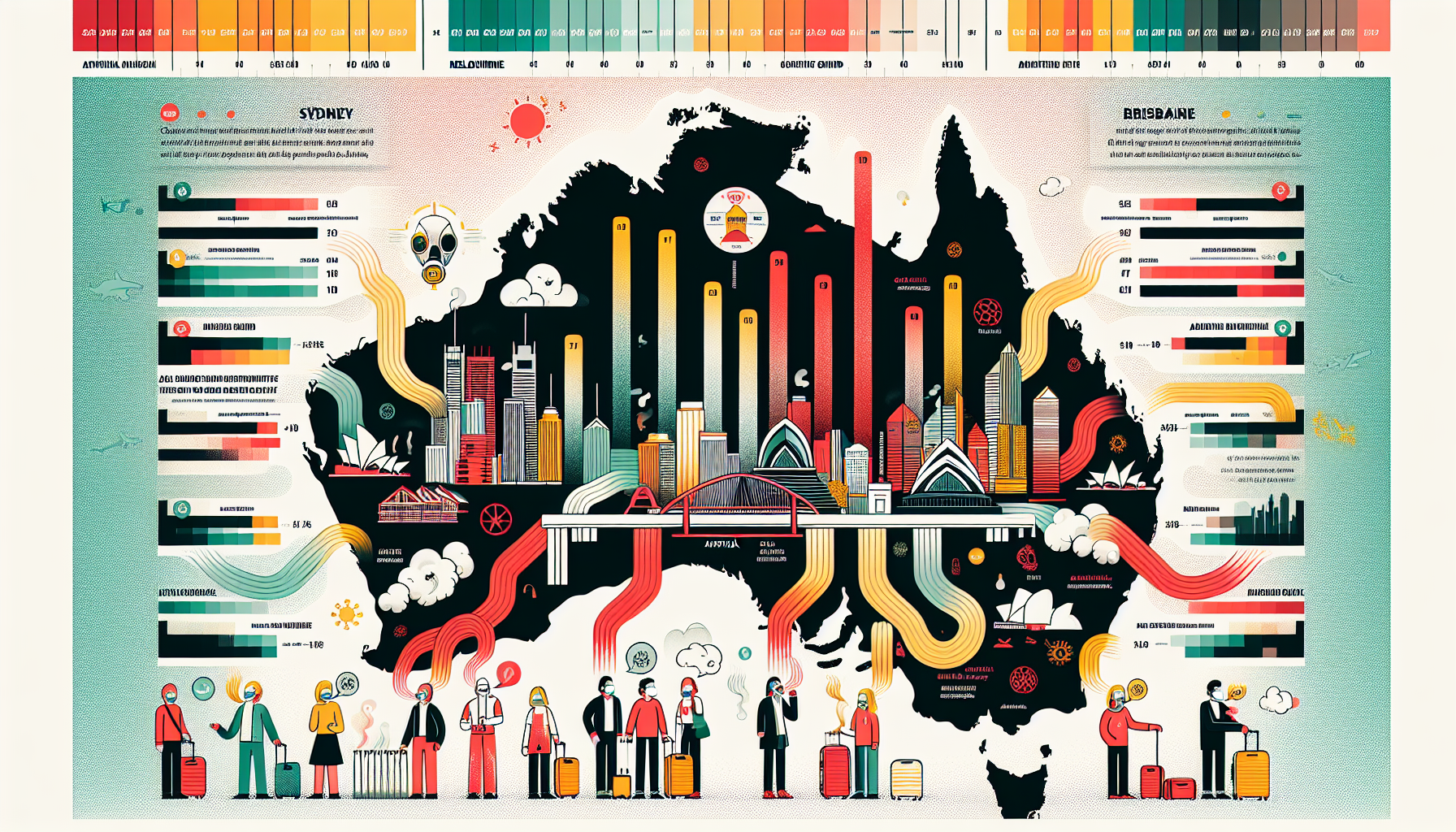Hobart, Darwin, and Canberra Shine in Global Air Quality Rankings: A Closer Look
In a recent study by Auto Trader, three Australian cities—Hobart, Darwin, and Canberra—have been ranked among the top ten global cities with the lowest air pollution levels. This analysis encompassed data from nearly 400 cities worldwide and utilized an air quality index score that assessed various hazardous pollutants. Hobart claimed the third spot, Darwin the fourth, and Canberra rounded out the top ten.
The Ranking Breakdown
-
Hobart's Clean Air
Positioned third in this global analysis, Hobart's high ranking can be attributed to its smaller population and proximity to the ocean. As urban areas often grapple with pollution due to industrial activity and vehicle emissions, Hobart demonstrates how geographical advantages can contribute to cleaner air quality. -
Darwin's Paradox
Despite being ranked fourth, experts like Prof. Fay Johnston of the Centre for Safe Air have pointed out discrepancies in the findings. Citing two decades of monitoring by local environmental authorities, Johnston noted that Darwin has consistently reported higher air pollution levels, particularly from savanna fires. The conversation underscores the difference between data interpretation and real-time local observations. -
Canberra’s Tenacity
Canberra, though ranked 10th, showcases the importance of maintaining healthy city environments. Its infrastructure and urban planning have been conducive to limiting pollution sources. This ranking emphasizes the role of regional governance in air quality management.
Concerns in Other Australian Cities
The analysis revealed that Sydney ranked 150th, surprisingly below London (90th). Clare Walter, a public health researcher at the University of Melbourne, disputed these findings. Through local monitoring, Walter has asserted that Sydney has never experienced air quality worse than that of London, highlighting the inadequacies of generalized global data.
Health Implications of Air Pollution
Experts are vocal about the detrimental health impacts of air pollution, including increased rates of asthma, lung cancer, respiratory infections, and cardiovascular diseases. Particularly alarming is the risk to young populations, with one in six childcare centers and schools located close to busy roads—an environment tinted with hazardous air quality.
Dr. Kate Charlesworth of the Climate Council highlighted the misconception among Australians regarding their air quality. While wide-reaching, such beliefs can hinder necessary changes to combat pollution and its significant health impacts.
Pathways to Improvement
Promisingly, several actionable strategies exist to improve air quality in Australian cities. Stronger policies on vehicle emissions, the promotion of electric vehicles, anti-idling regulations, and the establishment of clean air zones have shown potential in other countries. For instance, London’s introduction of ultra-low emission zones correlated with reduced asthma-related emergencies.
Furthermore, enhancing public transportation options and encouraging active modes of transport like cycling and walking could play vital roles in improving city air quality. As urban centers face escalating challenges related to air pollution, comprehensive and adaptive measures could pave the way for healthier living environments.
A Shared Responsibility
The revelation of Hobart, Darwin, and Canberra's air quality rankings serves as both recognition of their achievements and a wake-up call for other cities grappling with pollution. As Australians strive for cleaner air, the insights drawn from this analysis can guide future policy initiatives, emphasizing that the health of the nation begins with understanding and improving the air we breathe.
By focusing on the tangible benefits of eco-friendly practices and cleaner air initiatives, cities can inspire individuals and policymakers alike to take steps towards a healthier, more sustainable future.
Keywords: Air quality, Australian cities, pollution rankings, public health, Hobart, Darwin, Canberra, environmental policy, vehicle emissions, electric vehicles, air pollution health impacts.
